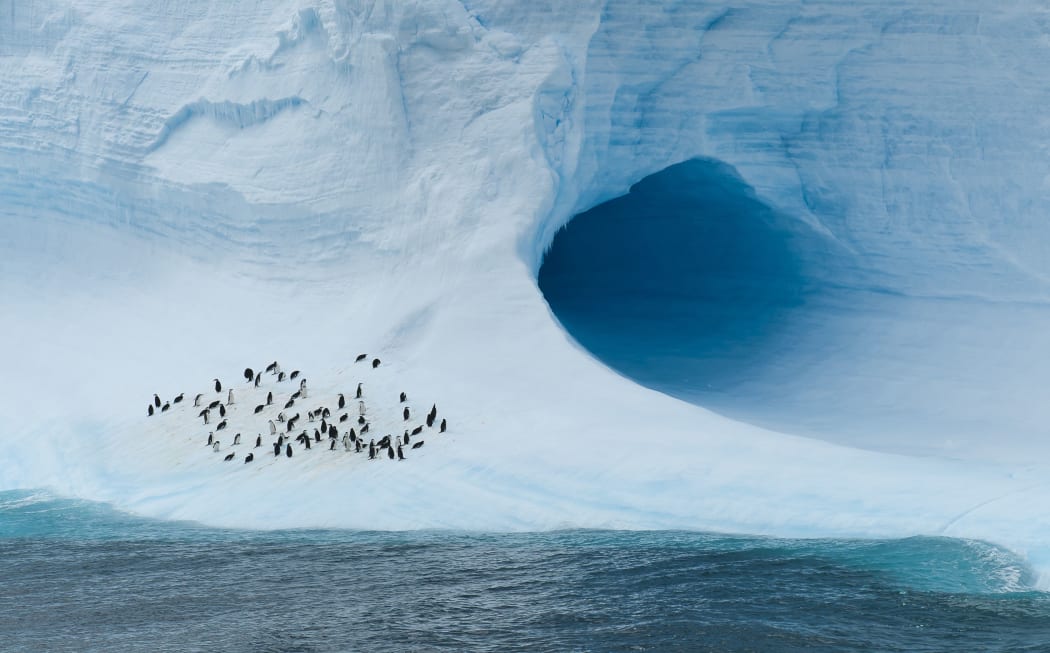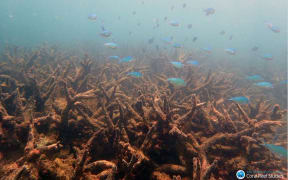An opportunity to create the world's largest marine sanctuary in Antarctica has failed because China and Russia will not back it.

Chinstrap penguins on an iceberg in the Antarctica Weddell Sea. Photo: AFP
Proposals to create three ocean sanctuaries - the largest being the size of Germany - were put to the Antarctic Ocean Commission in Hobart this week.
Greenpeace is accusing Russia and China of using delay tactics to quash the proposals.
Norway has also been criticised for asking for amendments to one of the sanctuary proposals.
The head of New Zealand's delegation, Amy Laurenson from the Ministry of Foreign Affairs and Trade, said she was disappointed by the outcome, but hoped one or all of the sanctuaries would be created when the commission met next year.
"We did have some robust discussion.
"The commission works by consensus so we really have to get to the point where all members of the commission are able to support it and all members need to see their interests reflected in the final outcome. Unfortunately that was not possible at this meeting."
The largest of the proposed sanctuaries, the Antarctic Ocean Sanctuary, would have covered 1.8 million square kilometres in the Weddell Sea.
This proposal was supported by 22 of the 25 attending government delegations, including New Zealand.
Greenpeace campaigner Frida Bengtsson said a historic opportunity had been missed.
"Rather than put forward reasoned opposition on scientific grounds, some delegations, like China and Russia, instead deployed delaying tactics such as wrecking amendments and filibustering, which meant there was barely any time left for real discussion about protecting Antarctic waters.
"We're running out of time and scientists are clear that we need to create marine sanctuaries across at least 30 per cent of our oceans by 2030 to protect wildlife, ensure food security for billions and help to tackle climate change."
Greenpeace criticised the commission for failing to meet its mandate to conserve the ocean.
"If bodies like the Antarctic Ocean Commission continue to fail in their mandate to conserve the ocean, they're clearly unfit for purpose and aren't part of the solution. Instead we must look to the historic negotiations taking place at the UN."
In September, governments at the United Nations began negotiations towards a Global Ocean Treaty which would cover all oceans beyond national borders.
The negotiations are the result of a decade-long process and could conclude as early as 2020. The treaty could provide the framework for the creation of a network of ocean sanctuaries across a third of the world's oceans by 2030.



